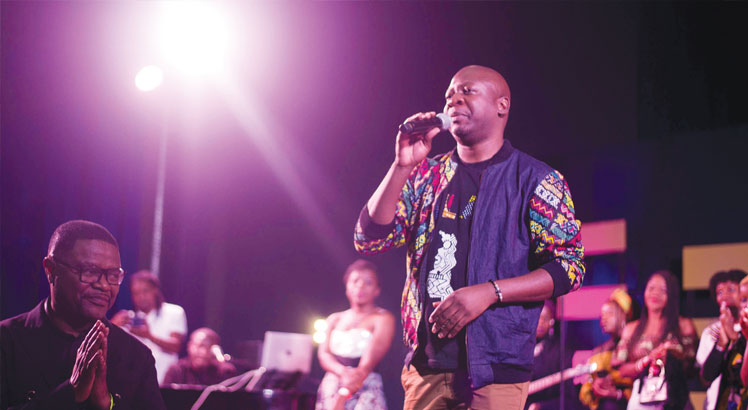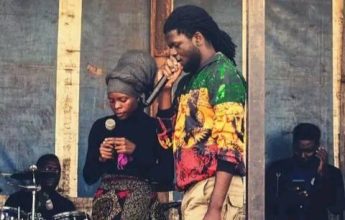When the church becomes the anankungwi

Not long ago, initiations were an intricate part of Malawi culture.
If one had not gone through the rite of passage, they were seen as uncultured. Lhomwes call such people, ‘alukhu’.
Initiation rites vary in content and intensity depending on tribe, although they have similar core components.
Girls are initiated when they reach puberty, which can be as young as 12, where they are taken aside and taught about adulthood – the roles, responsibilities and expectations of women in society, as well as often having a sexual component, where girls are taught how to please a man.
The initiation ceremonies consolidate the cultural notion that women hold an inferior position to men in society.
Girls are taught to be responsive to the needs of their male counterparts, reinforcing the belief that men are more powerful within society, which consequently is believed to increase the likelihood of violence and exploitation against women and girls.
Initiation ceremonies are seen to mark the transition from girl to womanhood and they can have a significant impact on the mind-sets of young girls.
“In some cultures, women counsellors, locally known as anankungwi, perform a dance while naked and while lying on their backs, they wriggle their waists in simulation of the process of having sex,” said a lady initiate who did not want to be named.
During this time, songs, usually obscene, are sung to drive the message home.
Each song has a particular message to convey to the girls. They say the songs are a channel through which advice to the girls is conveyed.
“Among others, the girls are advised never to add salt to relish during her periods for fear of causing an illness called ‘tsempho’ to those who partake in the meal and not to deny their husbands sex when they get married except during that time of the month,” she adds.
Girls are also taught kudekesera or kudikulira to assist the man during intercourse.
As some respondents noted: “Mkazi weniweni amayenera kumuthandizira mwamuna wake kuti chigololo chikomele onse (A real woman helps her man during intercourse for both of them to enjoy sex,” a 2013 Malawi Human Rights Commission report on cultural practises confirms.
Another major aspect of the initiation ceremony is labia elongation popularly known as kukuna, kukoka, kuthuna or makuna depending on the tribe.
“During chinamwali, the nankungwi can also check the girls physically to see if they have pulled their labia. This is known as kukuna or zokoka in the Central and Northern Regions, and kuthuna, kukoka, kuwotcha nsatsi or futa in the Southern Region.
“Girls as young as seven or eight years of age are taught how to pull their labia so that with the passage of time the labia elongate into something like fingers attached to the vagina. The practice involves pairing the girls. Each girl gently pulls the labia of the other for minutes or hours as instructed by the elders. This is done up to the time when they attain puberty or when the labia have been pulled to the right size,” reads the report.
The main purpose of kukuna is to give the girls’ sexual partners maximum pleasure during intercourse. It is intimated that a woman whose genital parts are not pulled does not arouse a man during sexual intercourse because the man has nothing to caress during foreplay, holding the man’s member in place during intercourse, reducing problems on delivery as the birth canal is properly opened, making the labia cover the inner female private parts, especially for women who have given birth, among others justifications.
However, nowadays, initiation camps are not common and in fact, in some parts, the church has taken a leading role in advising women by holding church-sanctioned women advisory groups known as chilangizi.
Mary Singano, a counsellor with Mvama CCAP Church said the church’s role is to purify the process of counselling girls as they reach puberty.
“There were some things that are deemed wrong in the way initiations were being handled in the past. As a church, we had to step in to sanitise the situation. So, what we advise these girls is premised from what our parents used to teach us in the past,” she said.
Traditional authority and counsellor T/A Kachindamoto say initiations are an integral part of culture and need not to be removed from the cultural setting.
“Culture evolves but it will always be there because it identifies a country. Initiations are and will always remain important part of Malawi culture. There is a difference in terms behaviour for those who were initiated and not. It will be obscene to remove initiations in our cultural statutes,” she said.






Why expose or devalue our culture. Our culture should be respected. You need to conduct un biased survey not what is reported here. All is negative. I have gone through our initiation and all what were taught were good material to mould the culture of our nation.